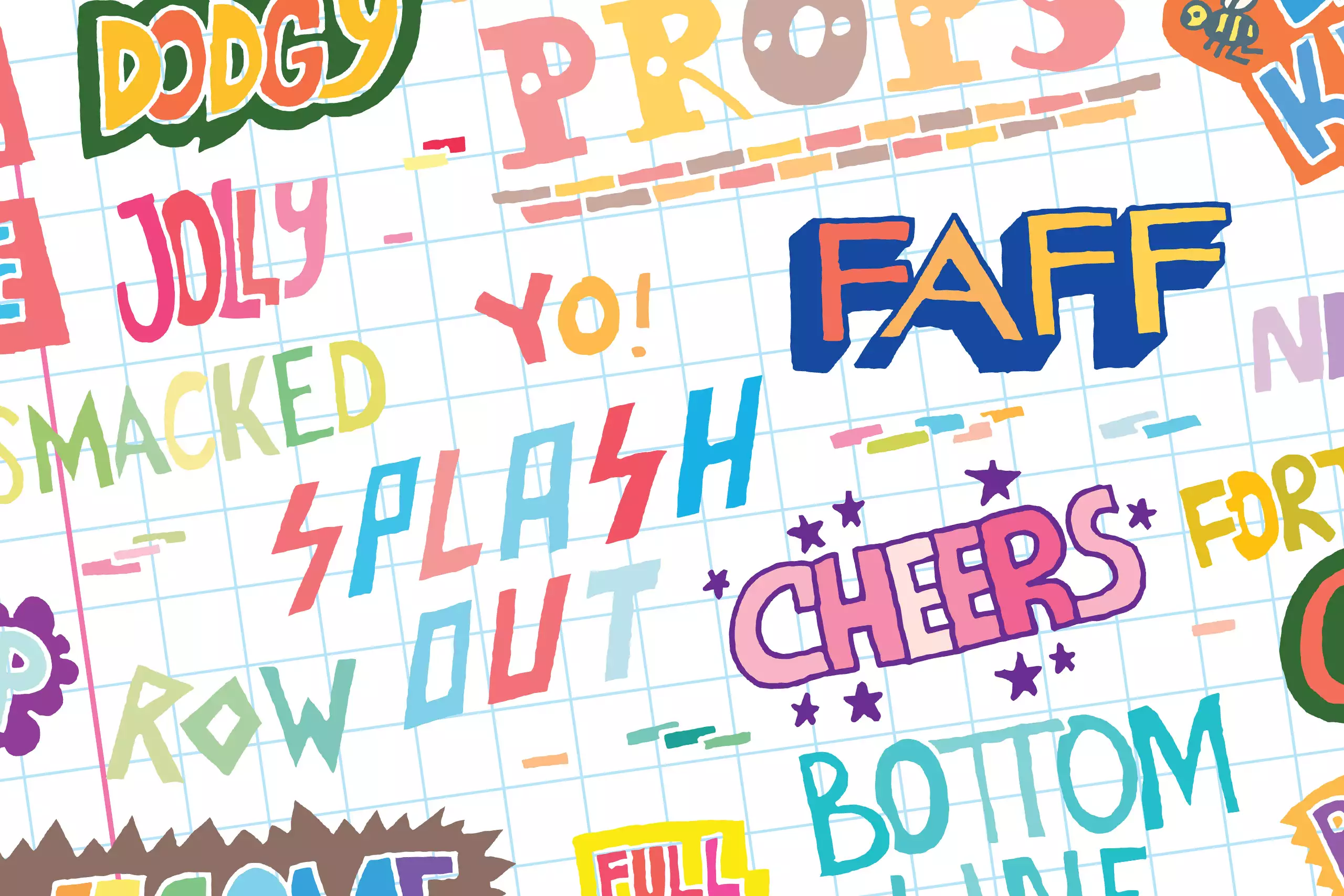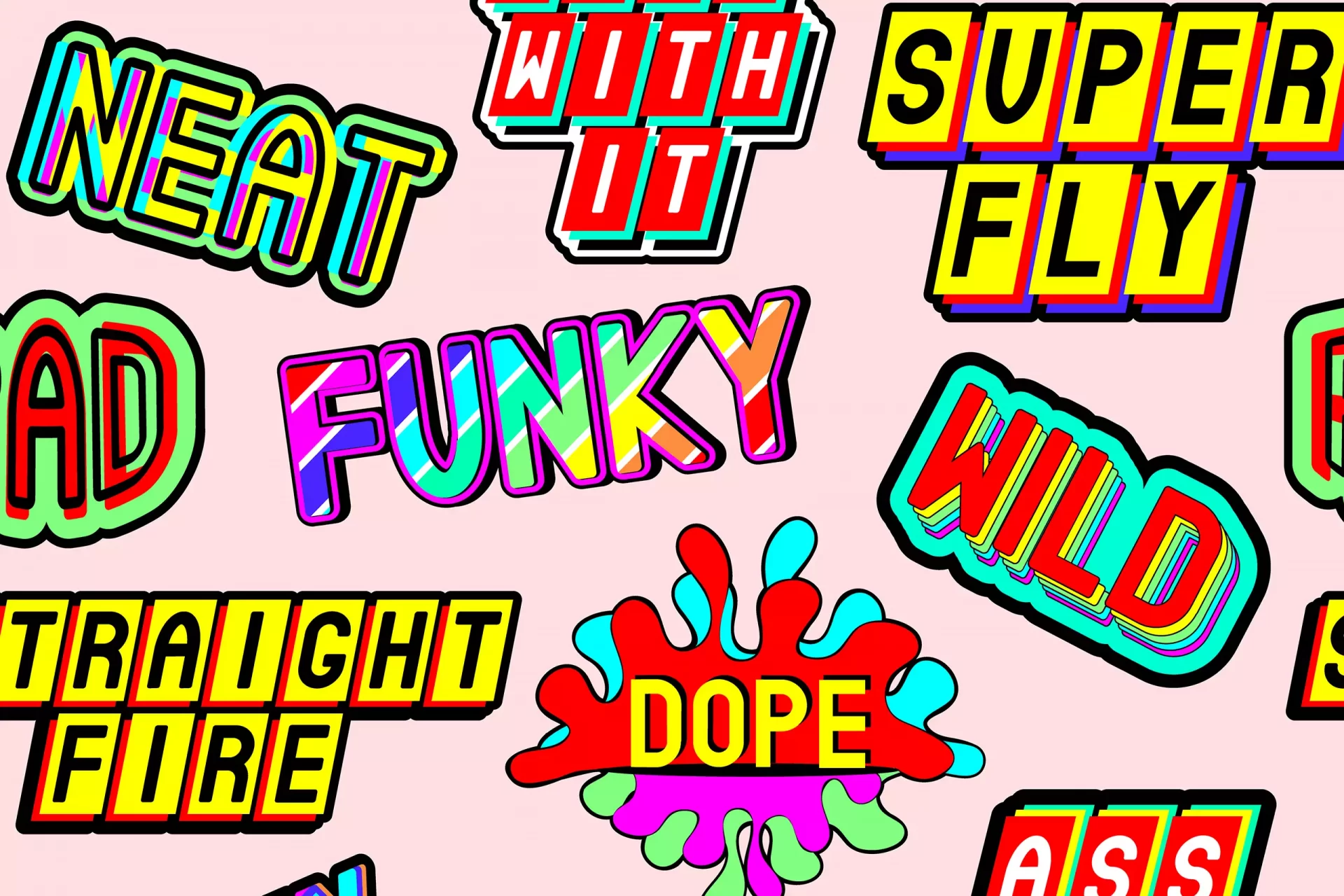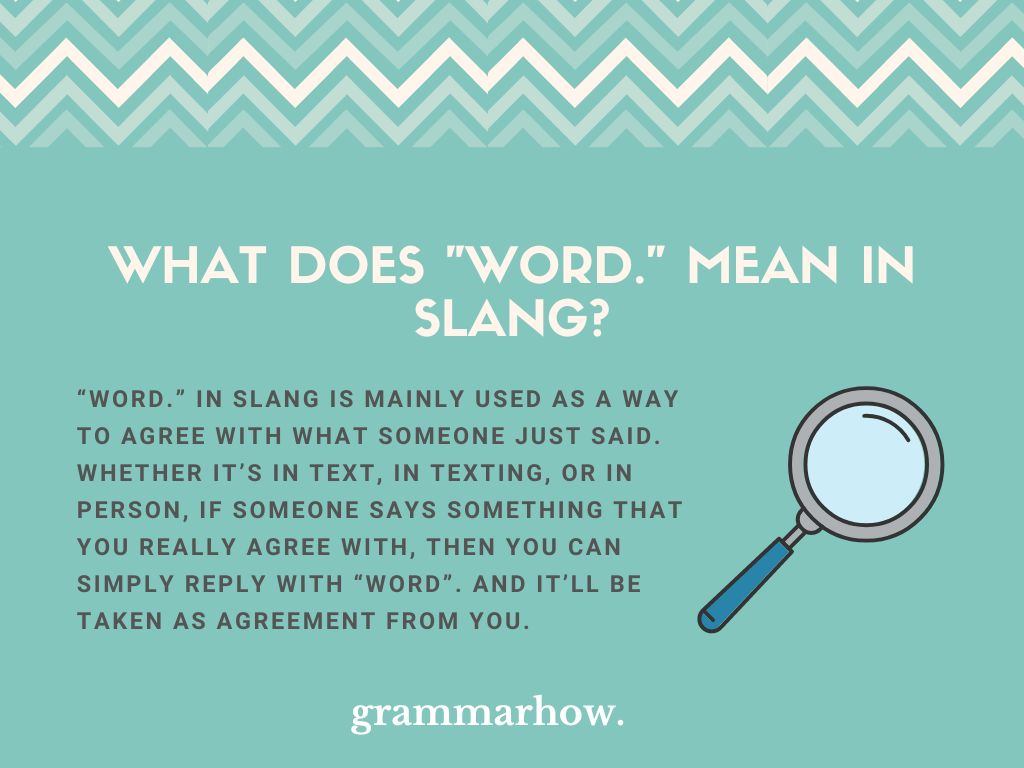Have you ever heard someone use the word "twelve" in a conversation and felt a little lost? Perhaps you've seen it pop up in a song lyric or on social media, and you're just not quite sure what it means. Well, you're not alone, actually. Slang can be a bit of a moving target, can't it? Words pick up new meanings all the time, and keeping up can sometimes feel like a full-time job.
This kind of language, you know, the informal stuff, is always changing, very much so. It's like a secret code sometimes, used by different groups of people to talk about things in a way that others might not immediately grasp. Knowing these terms can really help you understand what's going on around you, especially in today's world where communication happens so fast.
So, what does "twelve" mean in slang? In this article, we're going to break down this particular term, exploring its meaning, where it likely came from, and how it gets used in everyday talk and popular culture. We'll also touch on why slang like this pops up and why it matters to understand it, too, you know.
Table of Contents
- What is "Twelve" in Slang?
- Where Did "Twelve" Come From?
- Why Do People Use "Twelve"?
- How "Twelve" is Used Today
- Understanding Slang and Its Evolution
- Frequently Asked Questions
What is "Twelve" in Slang?
When someone says "twelve" in slang, they are, quite simply, referring to the police. It's a coded term, you know, a way to talk about law enforcement without explicitly saying "cops" or "police officers." This particular usage is pretty widespread in certain communities and subcultures, especially those where there might be a strained relationship with authority figures.
The term functions as a kind of shorthand, allowing people to communicate quickly and discreetly about the presence or actions of police. It's a word that carries a specific weight, often used in situations where caution or secrecy is, frankly, important. You might hear it whispered or casually dropped into a sentence, and if you're in the know, you'll get the message right away.
It's not just a simple replacement for "police," though. There's often a bit of an underlying meaning, a subtle implication of surveillance or an impending encounter. So, when someone says "twelve is coming," it's not just a statement of fact; it's a warning, a heads-up that you might need to be careful, or at least aware of your surroundings, basically.
Where Did "Twelve" Come From?
The precise origin of "twelve" as a slang term for police is, in a way, a little fuzzy, as many slang terms are. It's not like there's one definitive historical document that points to its first use. However, most theories connect it to popular culture, particularly television shows from decades past, or perhaps even specific police codes.
One common idea suggests a link to the old television show "Adam-12," which was a police procedural drama that aired from 1968 to 1975. This show followed two Los Angeles Police Department officers in their patrol car, unit "Adam-12." For many viewers, this show was a primary representation of police work on screen, and so, the unit number might have just stuck, you know.
Another theory, less widely accepted but still mentioned, points to radio codes or internal police communication systems. Some suggest that "12" might have been a code for something like "suspect sighted" or "police presence required" in some older, localized law enforcement radio protocols. This is less likely to be the primary source, but it's a thought, too.
Possible Theories and Roots
The "Adam-12" theory holds a lot of weight because of the show's popularity and how widely it was viewed. It introduced a large audience to the numerical designation of a police unit, making it a recognizable symbol of law enforcement. Over time, that specific unit number could have easily been generalized to represent all police, which is quite a common linguistic shift.
Think about how other terms become generalized, like "Kleenex" for all tissues, or "Band-Aid" for any adhesive bandage. It's a similar process, where a specific brand or identifier becomes the common word for the entire category. In this case, "Adam-12" may have simply become synonymous with "police," which is rather interesting, isn't it?
It's also worth considering that slang often emerges from a need for quick, shared understanding within a group. Whether it was from a TV show or some other source, the term "twelve" provided a concise way to refer to police, especially in contexts where direct language might have been less desirable or even risky, you know, for some folks.
"Twelve" in Pop Culture
The term "twelve" has certainly cemented its place in various forms of pop culture, particularly in music genres like hip-hop and rap. Artists often use it in their lyrics to describe encounters with law enforcement, or to convey a sense of vigilance or distrust. This usage helps to spread the term and keep it current, too, more or less.
You can find countless examples in songs where "twelve" is used to set a scene or describe a situation involving police. This widespread use in music means that even people who aren't directly part of the subcultures where the term originated will likely come across it. It becomes a part of the broader cultural vocabulary, basically.
Beyond music, the term has also appeared in movies, TV shows, and even video games that aim to depict urban environments or street life. This continued presence in media reinforces its meaning and helps new generations understand what does twelve mean in slang. It's a cycle, really, where culture reflects language, and language, in turn, shapes culture, you know.
Why Do People Use "Twelve"?
People use slang like "twelve" for several compelling reasons. One of the primary drivers is the need for a shared, often coded, language within a specific group. Using a term like "twelve" can create a sense of belonging and mutual understanding among those who are in the know, while also excluding outsiders, which is kind of how these things work.
For many, using "twelve" offers a way to speak about sensitive topics, like police presence, without being overly direct. This can be particularly useful in situations where discretion is important, or when people want to avoid drawing attention to their conversation. It's a subtle way to convey a message, basically, without making a big fuss.
Additionally, slang terms can carry a certain cultural weight or attitude that more formal words do not. "Twelve" might evoke a feeling of wariness, defiance, or simply an acknowledgment of a specific reality, depending on the context and the speaker's tone. It's more than just a word; it's a piece of cultural shorthand, you know, very much so.
The use of such terms also reflects a dynamic relationship between language and identity. When you use "twelve," you're not just communicating a fact; you're also signaling your awareness of certain social dynamics and your connection to a particular way of speaking. It's a subtle nod to shared experiences and perspectives, too, really.
How "Twelve" is Used Today
Today, "twelve" continues to be a relevant slang term, particularly in contexts related to street culture, protest movements, and various forms of popular entertainment. Its usage reflects ongoing conversations about law enforcement and community relations. It's a term that remains quite active, even in this fast-changing world of words.
You might hear it in casual conversations among friends, as a quick warning or an observation about police activity in an area. For example, someone might say, "Better be careful, twelve is around the corner," to alert others to a nearby police presence. This kind of direct, practical use is pretty common, you know.
It also pops up frequently in online discussions, especially on social media platforms where people share news, opinions, or experiences related to police. Hashtags or casual mentions of "twelve" can be found in comments, posts, and videos, indicating that the term has successfully transitioned into the digital age, very much so.
Everyday Talk
In everyday conversations, "twelve" is often used to convey a sense of caution or to simply point out the presence of police. It's a simple, straightforward term that gets the message across quickly. For instance, if you're driving and you see a police car, you might tell your passenger, "Watch out, twelve is behind us." It's just a quick heads-up.
It can also be used in a more general sense to refer to the police as an institution or a collective entity. Someone might say, "Twelve is always watching," to express a feeling of being under surveillance or to comment on the general presence of law enforcement in society. This shows its versatility, too, you know.
The context really matters when using or hearing "twelve." The tone of voice, the situation, and who is speaking can all influence the exact nuance of the term. Is it a friendly warning? A frustrated complaint? A simple observation? All these things play a part in how the word is understood, basically.
Music and Media
As mentioned earlier, "twelve" is particularly prevalent in music, especially within hip-hop and rap genres. Artists use it to narrate stories, express social commentary, and create a sense of authenticity in their lyrics. It's a powerful word that can evoke strong images and emotions for listeners, basically.
For example, a lyric might say, "Running from twelve, trying to make it home," which immediately paints a picture of someone trying to evade police. This kind of imagery resonates with many listeners, especially those who have similar experiences or who relate to the themes of the music. It's a common thread, in a way.
Beyond music, you might encounter "twelve" in films or television shows that portray urban life, crime dramas, or documentaries about social issues. Its inclusion helps to make the dialogue sound more authentic and true to life, especially when characters are meant to be speaking in a contemporary, informal style. It just feels right, you know.
The term's consistent appearance across various media platforms ensures its continued relevance and understanding among a broad audience. It's a testament to how language, especially slang, can spread and become ingrained in the collective consciousness, very much so, over time.
Understanding Slang and Its Evolution
Understanding terms like "what does twelve mean in slang" is a good reminder that language is a living, breathing thing, always changing and adapting. Slang isn't just random words; it often reflects cultural shifts, social attitudes, and the specific needs of different communities to communicate effectively. It's a fascinating area of study, really.
New slang terms emerge constantly, while older ones might fade away or take on new meanings. This process is influenced by everything from popular media to technological advancements and major social events. It's like a linguistic ecosystem, where words compete for relevance and acceptance, you know.
For instance, the way we talk online has given rise to countless new slang terms and abbreviations that would have been completely unintelligible just a few years ago. This shows how quickly language can evolve, especially when new communication platforms emerge. It's quite a rapid process, actually.
Keeping an eye on these linguistic developments can help you stay connected to current cultural conversations and better understand the world around you. It's not just about knowing definitions; it's about grasping the nuances of human expression and the ways people connect through shared language, very much so. To learn more about how language changes, you could look up information on a reputable language resource, for example.
Slang also serves as a powerful tool for identity. The words we choose to use, and the way we use them, can signal our affiliations, our beliefs, and even our age group. It's a subtle but significant part of how we present ourselves to the world, basically. Learn more about language trends on our site, and link to this page understanding slang origins for deeper insights.
So, the next time you hear a slang term you don't recognize, consider it an opportunity to learn something new about how people are communicating today. It's a chance to peek into a different facet of human interaction, and that's pretty cool, isn't it?
Frequently Asked Questions
Is "twelve" a derogatory term?
The term "twelve" itself isn't inherently derogatory, but its usage often carries a negative or wary connotation, depending on the speaker's relationship with law enforcement. It's more of a neutral descriptor that can be used in contexts ranging from simple warnings to expressions of distrust, you know. The context and tone really dictate the feeling behind it.
Is "twelve" used only in certain regions?
While slang terms can sometimes be regional, "twelve" has gained pretty widespread recognition due to its presence in popular culture, especially music. You might hear it more often in certain urban areas or communities, but its understanding is, in a way, quite broad now, extending across many different places, basically.
How can I keep up with new slang terms?
Keeping up with new slang can be a bit of a challenge, as it changes so quickly. One good way is to pay attention to popular music, social media trends, and online communities where informal language thrives. Listening to how people talk in different settings can also give you clues, too, really. It's all about observation and staying curious.



Detail Author:
- Name : Mara Gaylord
- Username : brain.donnelly
- Email : lura.spinka@schmidt.com
- Birthdate : 1991-03-15
- Address : 95985 Ava Turnpike Suite 802 Roweton, AR 31644-6691
- Phone : (971) 283-9399
- Company : Legros-Greenfelder
- Job : Production Manager
- Bio : Ex libero optio eos ducimus dolorem doloribus. Perferendis reiciendis exercitationem et hic nihil. Commodi qui ullam numquam explicabo cum.
Socials
instagram:
- url : https://instagram.com/brycehessel
- username : brycehessel
- bio : Consectetur sit numquam rerum. Ex nihil maiores amet.
- followers : 2724
- following : 1851
facebook:
- url : https://facebook.com/brycehessel
- username : brycehessel
- bio : Excepturi aliquid ullam aut exercitationem quos minima.
- followers : 3532
- following : 2384
tiktok:
- url : https://tiktok.com/@bryce.hessel
- username : bryce.hessel
- bio : Itaque architecto non perferendis magnam enim ratione sint.
- followers : 686
- following : 1049